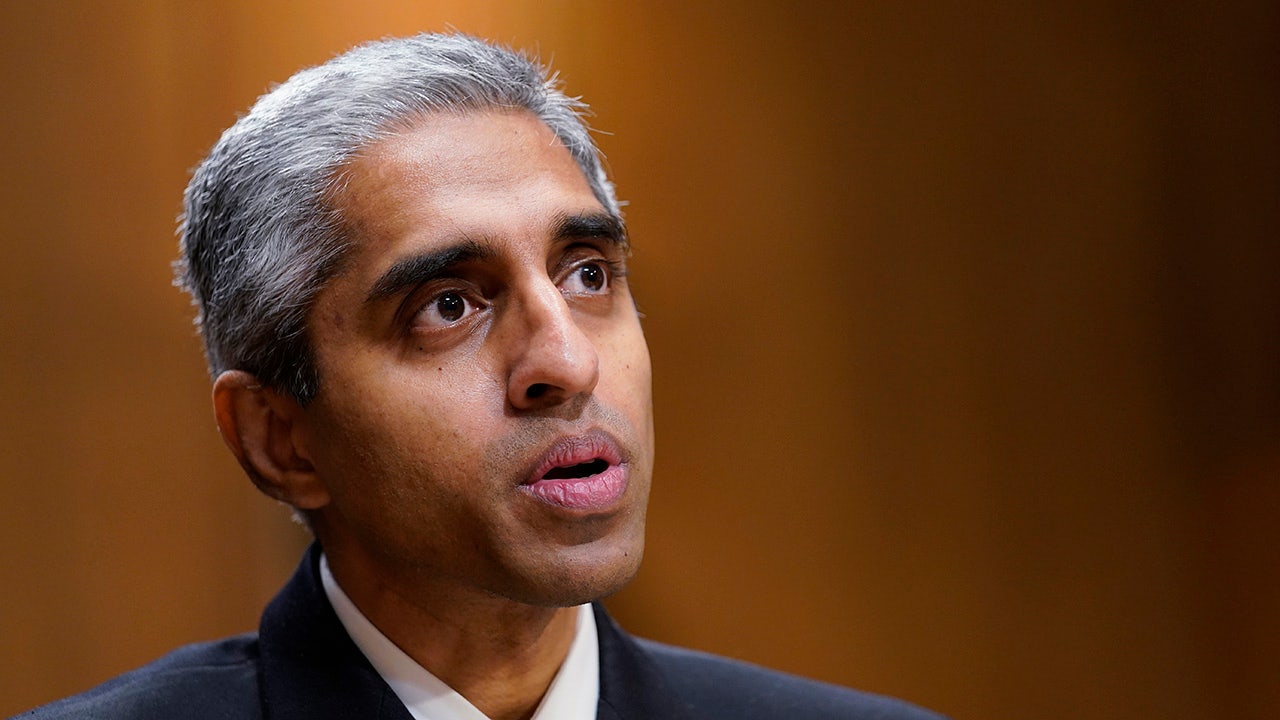Finance
US surgeon general issues major advisory warning social media feeding ‘national youth mental health crisis’

Dr. Vivek Murthy, the U.S. surgeon general, issued a major advisory on Tuesday warning of the “profound risk” social media poses to children and teens.
“Nearly every teenager in America uses social media, and yet we do not have enough evidence to conclude that it is sufficiently safe for them. Our children have become unknowing participants in a decades-long experiment. It is critical that independent researchers and technology companies work together to rapidly advance our understanding of the impact of social media on children and adolescents,” Murthy wrote in the 25-page advisory.
“Our children and adolescents don’t have the luxury of waiting years until we know the full extent of social media’s impact. Their childhoods and development are happening now,” the surgeon general said. “While social media use can have positive impacts for some children, the evidence noted throughout this Surgeon General’s Advisory necessitates significant concern with the way it is currently designed, deployed, and utilized.
“Child and adolescent use of platforms designed for adults places them at high risk of ‘unsupervised, developmentally inappropriate, and potentially harmful’ use according to the National Scientific Council on Adolescence. At a moment when we are experiencing a national youth mental health crisis, now is the time to act swiftly and decisively to protect children and adolescents from risk of harm.”
Murthy called on tech companies to act, noting that after years of middling and insufficient action by both social media platforms and policymakers, parents and young people still bear most of the burden in navigating the fast-changing, often harmful world of secretive algorithms, addictive apps, and extreme and inappropriate content found on platforms such as Instagram, TikTok and Snapchat.
TIKTOK SUES MONTANA FOR OUT RIGHT BAN OF THE APP IN STATE
As of 2021, 8th and 10th graders were spending an average of 3.5 hours per day on social media, the advisory notes.
The advisory cites a unique natural experiment showing the rollout of a social media platform was associated with an 9% increase in depression and 12% over baseline increase in anxiety among college-aged youth. The study’s co-author also noted that, when applied across the entirety of the U.S. college population, the introduction of the social media platform may have contributed to more than 300,000 new cases of depression.
The findings “raise serious concerns about the risk of harm from social media exposure for children and adolescents who are at a more vulnerable stage of brain development,” the advisory says.
“These studies point to a higher relative concern of harm in adolescent girls and those already experiencing poor mental health, as well as for particular health outcomes like cyberbullying-related depression, body image and disordered eating behaviors, and poor sleep quality linked to social media use,” it says.
META PLATFORM’S INSTAGRAM REPORTEDLY HAS TWITTER COMPETITOR APP IN THE WORKS

“Extreme, inappropriate, and harmful content continues to be easily and widely accessible by children and adolescents. This can be spread through direct pushes, unwanted content exchanges, and algorithmic designs. In certain tragic cases, childhood deaths have been linked to suicide and self-harm-related content and risk-taking challenges on social media platforms,” the advisory says.
“Despite social media providing a sense of community for some, a systematic review of more than two dozen studies found that some social media platforms show live depictions of self-harm acts like partial asphyxiation, leading to seizures, and cutting, leading to significant bleeding. Further, these studies found that discussing or showing this content can normalize such behaviors, including through the formation of suicide pacts and posting of self-harm models for others to follow.”
“In addition,” the advisory says, “social media platforms can be sites for predatory behaviors and interactions with malicious actors who target children and adolescents (e.g., adults seeking to sexually exploit children, to financially extort them through the threat or actual distribution of intimate images, or to sell illicitly manufactured fentanyl).”

“Further, some researchers believe that social media exposure can overstimulate the reward center in the brain and, when the stimulation becomes excessive, can trigger pathways comparable to addiction. Small studies have shown that people with frequent and problematic social media use can experience changes in brain structure similar to changes seen in individuals with substance use or gambling addictions,” the surgeon general warns.
“Additionally, social media-induced fear of missing out, or ‘the pervasive apprehension that others might be having rewarding experiences from which one is absent,’ has been associated with depression, anxiet, and neuroticism.”
The surgeon general also issued tips for young people, which include reaching out for help, creating boundaries, being cautious of what you share online, and not keeping harassment or abuse a secret.
There were also tips for parents and caregivers, such as creating a family media plan, establishing a tech-free zone, modeling responsible behavior, and empowering kids by teaching them about technology and encouraging them to be responsible online participants at the appropriate age.
The Associated Press contributed to this report.
Read the full article here


















